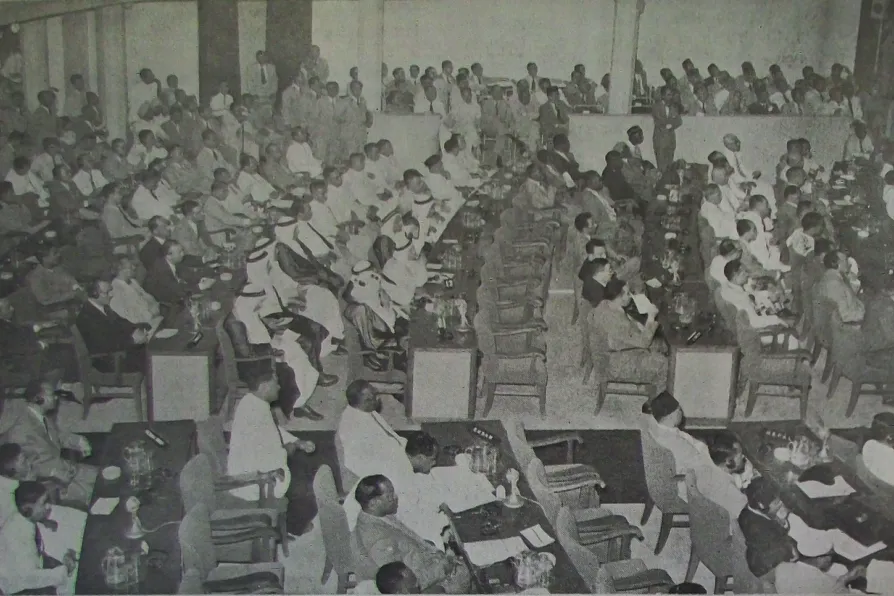RAMZY BAROUD on how Israel’s narrative collides with military failure
The meaning of the Bandung conference
The non-alignment and the South-South co-operation that started at Bandung has never been about shutting others out, but allowing the global majority to develop its own path, free of exploitation and interference, writes ROGER McKENZIE

 Plenary session during the Bandung Conference, Indonesia, 1955. The 10 principles agreed upon at Bandung called for respect for human rights, respect for sovereignty, equality, non-intervention in the internal affairs of other nations, the right to self-defence, and abstaining from collective defence arrangements.
Plenary session during the Bandung Conference, Indonesia, 1955. The 10 principles agreed upon at Bandung called for respect for human rights, respect for sovereignty, equality, non-intervention in the internal affairs of other nations, the right to self-defence, and abstaining from collective defence arrangements.
THE 1955 landmark Bandung Conference is still having a major impact on international foreign policy thinking nearly 70 years later.
The conference, held in Bandung, Indonesia, brought together representatives from 29 African, Asian and Middle Eastern countries in one of the first major transnational expressions of opposition to racism and colonialism.
Participants at Bandung represented countries such as Egypt, China, India and, of course, Indonesia.
More from this author

From the TUC Race Relations Committee to national union treasurers, a new generation of formidable black women leaders are breaking barriers and transforming the movement through uncompromising politics, writes ROGER McKENZIE

ROGER McKENZIE writes about late boxing legend Foreman’s legacy, from his part in Rumble in the Jungle to becoming world heavyweight champion at 45

The Guyanese scholar’s groundbreaking work revealed how Europe deliberately underdeveloped Africa while using its resources and people to fuel Western capitalism, writes ROGER MCKENZIE

China’s huge growth and trade success have driven the expansion of the Brics alliance — now is a good time for the global South to rediscover 1955’s historic Bandung conference, and learn its lessons, writes ROGER McKENZIE












